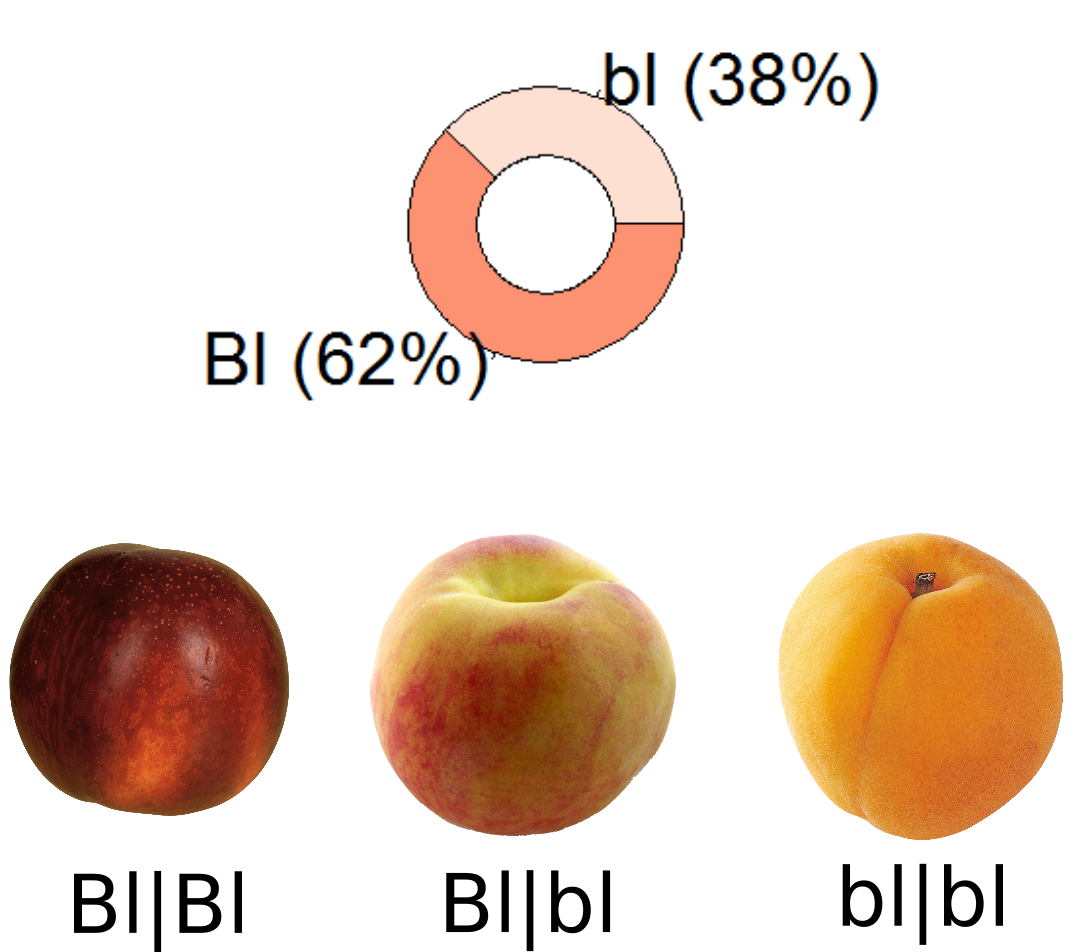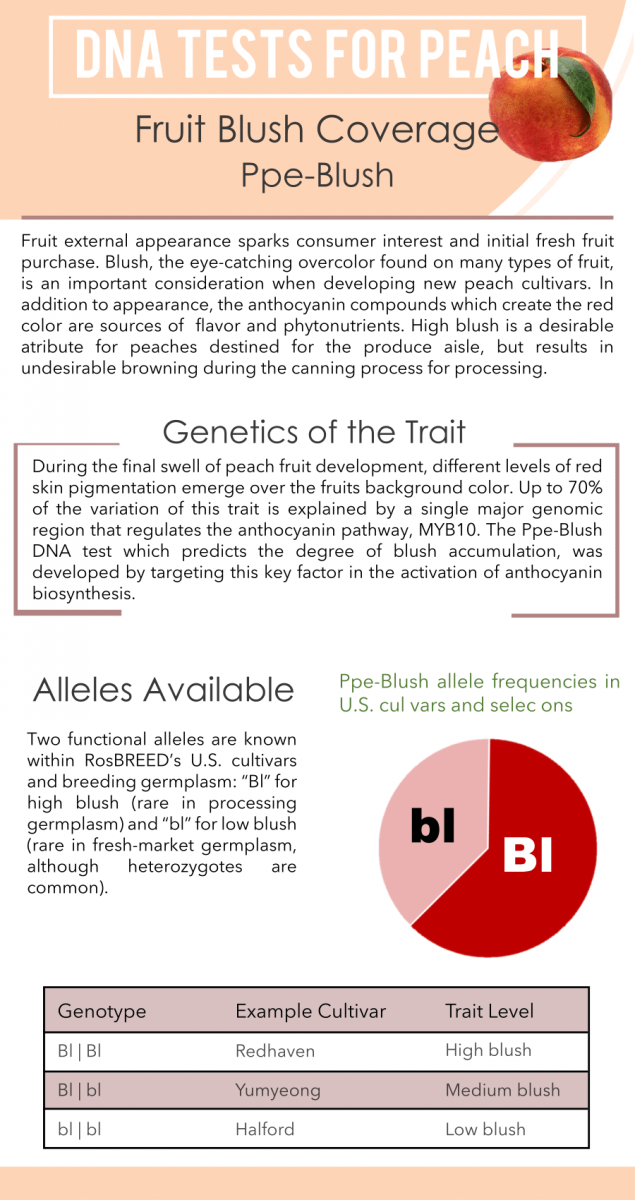Ppe Blush: Fruit Blush DNA Test
Fruit external appearance sparks consumer interest and initial fresh fruit purchase. Blush, the eye-catching overcolor found on many types of fruit, is an important consideration when developing new peach cultivars. In addition to appearance, the anthocyanin compounds which create the red color are sources of flavor and phytonutrients. High blush is a desirable attribute for peaches destined for the produce aisle, but results in undesirable browning during the canning process for processing peaches.
Genetics
During the final swell of peach fruit development, different levels of red skin pigmentation emerge over the fruits background color. Up to 70% of the variation of this trait is explained by a single major genomic region that regulates the anthocyanin pathway, MYB10. The Ppe-Blush DNA test which predicts the degree of blush accumulation, was developed by targeting this key factor in the activation of anthocyanin biosynthesis.Two functional alleles are known within RosBREED’s U.S. cultivars and breeding germplasm: “Bl” for high blush (rare in processing germplasm) and “bl” for low blush (rare in fresh-market germplasm, although heterozygotes are common). Ppe-Blush is a simple PCR-based DNA test consisting of two multiplexed SSR markers that can be used on a range of genotyping platforms.
Predictive Capacity
This DNA test is highly predictive, accounting for the majority of the genetic contributions to blush levels in U.S. breeding germplasm. In other words, although cultural practices and the growing environment can significantly affect blush development, what is heritable is associated with Ppe-Blush alleles. By targeting and selecting specific allelic combinations, you can directly focus on high or low blush according to your breeding objectives. The breeding utility of Ppe-Blush has been confirmed by RosBREED across four U.S. peach breeding programs, evidenced by its rapid deployment in two of the four programs already. Confirm the effects in your own germplasm before widespread use.
When to Assay
Ppe-Blush has a range of breeding uses, such as:
- Cross choices, to help choose parent combinations that will result in all seedlings with high blush or all seedlings with low blush.
- Seedling selection, to discard unwanted blush types before field planting in mixed families
Allelic State of Several Peach Cultivars
| Genotype | Example Cultivars | Phenotype |
|---|---|---|
| Bl | Bl | Redhaven | high blush |
| Bl | bl | Yumyeong | medium blush |
| bl | bl | Halford | low blush |
Allele Frequencies in U.S. Elite Germplasm

A table of haplotypes for important U.S. peach germplasm can be downloaded here.
Alleles Available
Two functional alleles are known within RosBREED’s U.S. cultivars and breeding germplasm: “Bl” for high blush (rare in processing germplasm) and “bl” for low blush (rare in fresh-market germplasm, although heterozygotes are common).
Technical Details
Ppe-Blush is a simple PCR-based DNA test consistng of two multiplexed SSR markers that can be used on a range of genotyping platforms.

